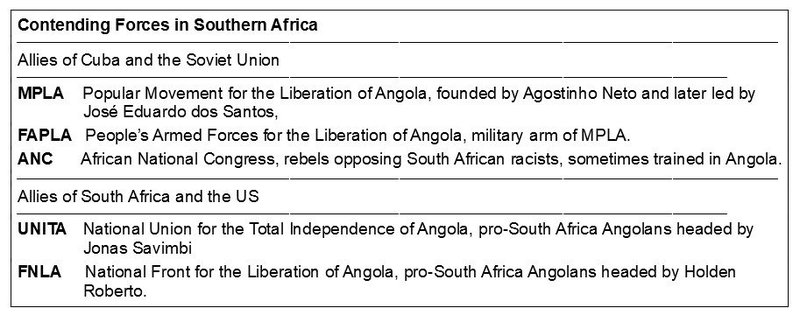by DON FITZ
/cloudfront-us-east-1.images.arcpublishing.com/lanacionar/L4VNKOWL4JDTVIOGZCDXACCHYU.jpg)
January 26, 2021 — Links International Journal of Socialist Renewal — Cuban blood left its stamp on the conscience of the world after the Angolan Wars of 1975-1988. Corporate politicians are united in their desire for us to ignore this reality.
Fed up with foreign wars, Portuguese officers overthrew Prime Minister Marcello Caetano on April 25, 1974. Many former colonies had the opportunity to define their own future.
Angola had been the richest of Portuguese colonies, with major production in coffee, diamonds, iron ore and oil. Of the former colonies, it had the largest white population, which numbered 320,000 of about 6.4 million. When 90% of its white population fled in 1974, Angola lost most of its skilled labor.
Three groups juggled for power. The Popular Movement for the Liberation of Angola (MPLA), headed by Agostinho Neto was the only progressive alternative. The National Front for the Liberation of Angola (NFLA), led by Holden Roberto, gained support from Zaire’s right-wing Joseph Mobutu, a conspirator in the assassination of Patrice Lumumba. Jonas Savimbi, who ran the National Union for the Total Independence of Angola (UNITA), worked hand-in-hand with South Africa’s apartheid regime.
Portugal told South Africa to remove its troops from Angola, which it did by October, 1974. Recently defeated in Viet Nam, the US felt unable to send troops. Encouraged by the Ford administration South Africa returned to Angola within a year.
Meanwhile, Fidel Castro’s representatives met with Neto along with the head of MPLA’s recently organized militia, the Popular Armed Forces for the Liberation of Angola (FAPLA). Not eager to intervene, Cuba declined to give financial support.

The South African invasion began October 14 when many of its white troops pretended to be UNITA forces by darkening their faces with “Black Is Beautiful” camouflage cream. By November, Fidel knew that without help the Angolan capital would fall to apartheid forces and he approved military assistance. The small number of Cubans who arrived were critical in stopping the South African drive to Angola’s capital, Luanda.
LINKS for more